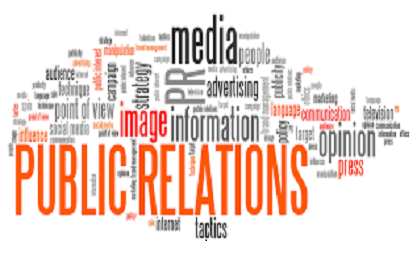By Stanley Olisa
Public relations is a communication discipline that is widely misconceived, not just in Nigeria, but globally. There are several misconceptions about this noble profession and we, as PR practitioners, must do well to disabuse the minds of many regarding what public relations truly exemplifies.
For those who are considering going into public relations, I have highlighted 6 things you must know before taking that career decision. PR isn’t a bed of roses. Don’t get carried away by the travels, media appearances, glamorous events and relative spokesperson fame which often come with the role. Depending on the industry, you may be grappling with crises every other week.
PR goes beyond publicity
This is the most prevalent misconception about what PR practitioners do- the belief that PR is merely publicity creation. But PR is more than that. Defining publicity is helpful here- the art of creating awareness for something or a person. That’s all there is to publicity. But in PR, we do much more. Yes, we create awareness for brands but the art of doing that is more disciplined and systematic than how publicists go about theirs. PR practitioners aren’t publicists but strategic communicators whose overriding goal is to elicit supportive behaviour from their brands’ stakeholders.
If you call me a publicist, I will consider it unsavoury and diminishing because the designation downplays the very essence of public relations. PR is a more rigorous art than publicity creation. In fact, PR is an art and a science, one that involves robust research, trend analysis, planning, execution, monitoring and evaluation.
As you consider delving into PR, bear in mind that the art isn’t all about pulling publicity stunts for your brand or clients. It isn’t all about media relations. When you go into the field with this proper orientation, it will reflect in your approach to briefs from clients. You’ll be more strategic in your practice. You won’t view every brief as requiring only a ‘press release outreach’. And this means your comms efforts will eventually produce a greater impact on the bottom line- the one thing that matters to the client. Your PR should ‘sell’. It should, over time, engender supportive behaviour that eases the job of the sales guys.
PR is 70% writing
You have no place in PR if you can’t write well and don’t love writing. Great PR practitioners are excellent writers. It’s not enough to know how to write- you must have a penchant for writing. It should excite you. In PR, you practically thrive on writing. The pen power- you should have it and continuously sharpen it. It’s a chief determinant of success in this field.
I hope my 70% above is even correct, because being able to write clearly for different audiences is what most CEOs use to decide whether to engage you or not. You write everything. Speeches, press releases, press statements, op-eds, byline features/articles, newsletters, copies for ads, captions for social media, goodwill messages, advertorial, corporate letters, proposals, public notices, scripts for broadcast, communiqués, etc. Each of these writings requires a specific style and serves a unique purpose. You must understand this and attune your writing accordingly.
Also, you must factor your audience and industry when writing. If you’re going into tech PR, you must familiarise yourself with tech lingo and adopt same when writing for your tech audience. Understanding your audience is very vital and largely determines the impact of your communication.
Apart from getting the lingo and audience right, your grammar must be tip-top- writing with impeccable grammar. Remember, your writings represent your corporate brand. You don’t want people picking holes or pointing out clangers in your social media captions. I’m not saying you should use bombastics; I’m saying your writings shouldn’t flout the rules of grammar. After writing, have someone proofread for you severally and use Grammarly before going public. Improve your writing by reading books on PR Copy Writing.
Be game for crises
As you plan to go into PR, bear in mind that you’ll also be an issues manager, a conflict resolver and a crisis communicator. Your job is to manage the reputation of your organisation as well as the expectations of its stakeholders. When a crisis erupts from any of the stakeholder groups, you must rise to the occasion by deploying your crisis management skills to protect the reputation of your organisation.
Becoming a good crisis manager demands that you be proactive. Nobody prays for crises, but they happen. Be prepared. Have a crisis management plan in place. Scan your industry for regular or ‘conventional’ crises. Develop a plan for each of them and rehearse it, because your organisation can be a victim some day. In aviation, for example, air crashes occur. What will you do if your airline is involved? That’s why you need a crisis plan. Define who does what in a crisis situation- crisis management committee. Share this plan with all members of the committee, and practice. Crises put PR practitioners through their paces. When you handle a crisis effectively, your relevance in the organisation grows.
PR is stakeholder management
Your job as a PR practitioner isn’t to only relate with the media. The media constitute just one of the many stakeholder groups that interact with your brand daily and the success of the brand depends on how you, the PR practitioner, manage the expectations and interests of these stakeholders.
Government relations is part of your job- ensuring a seamless relationship between your organisation and the government agencies superintending your industry. Community relations- making sure your brand and its host community are at peace with each other. Investor relations- maintaining mutual lines of understanding between the investors and the investee, your organisation. When we begin to compartmentalise the functions of PR from the stakeholders standpoint, its broad scope becomes unmistakably evident.
Online reputation management is big
The mistake some PR specialists make is to focus too much on traditional media while expending little resources on digital media. Don’t play down online media. Radio, TV, newspaper and magazine have their strengths but opportunities for PR also abound in the digital space.
These days, reputation is made and destroyed online. Your audiences are embedded in various online communities exhibiting different digital cultures which you can take advantage of to promote your brand and stimulate positive brand conversations. People spend more time online than they do watching TV in their sitting rooms. And now, we have Media Convergence or Multi-platforming- traditional media have digital media versions. Clearly, digital has come to stay and as you plan to go into PR, take a profound interest in SEO, SEM, social media management, Email marketing, YouTube advertising, etc and learn how to optimise them for better results.
Evaluation is key
Learn to monitor and evaluate your campaigns. Evaluation shows whether your efforts paid off or not and reveals where things may have derailed from the plan. Measure and report the results. You can read my piece ‘Evaluating PR Efforts for Enhanced Impact’. It provides a lot of insights on PR evaluation.
Stanley Olisa, a Media and Communications Consultant, wrote from Lagos.






Comment
No comments found.